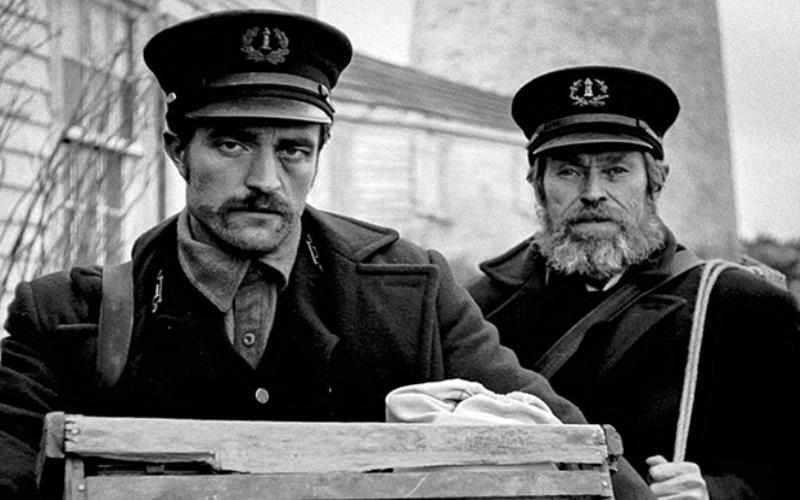Light House Movie Review: A Haunting Tale of Hope, Isolation, and Mystery
Introduction to Light House
Light House is a compelling psychological thriller that delves into isolation, memory, and the complexities of the human mind. Directed with precision and featuring emotionally gripping performances, the film explores the psychological impact of solitude while weaving a narrative filled with tension, mystery, and unexpected twists. Set against the backdrop of a remote lighthouse, the film’s haunting visuals and atmospheric score create an immersive experience that draws viewers into a claustrophobic world of fear, guilt, and obsession. Light House offers a blend of thrills, psychological drama, and existential reflection, making it a memorable cinematic experience.
Plot and Storyline of Light House
The narrative follows Arjun, a man sent to a secluded lighthouse to work as its keeper for several months. Seeking solitude after a personal tragedy, Arjun believes the isolation will help him escape the emotional turmoil of his past. However, the film takes a darker turn as Arjun begins to experience strange events and hallucinations, making him question what is real and what is a product of his fractured mind.
As the days pass, Arjun’s mental state deteriorates, and he becomes obsessed with uncovering the secrets hidden within the lighthouse. His interactions with a mysterious visitor, who may or may not be a figment of his imagination, add layers of intrigue to the story. The film skillfully builds tension, blurring the line between reality and illusion, as Arjun descends further into madness.
The narrative builds toward an emotionally charged climax, where Arjun must confront the truth about his past and the events unfolding around him. The film’s final revelation leaves viewers stunned, encouraging them to reflect on the nature of memory, guilt, and redemption. Light House offers not just a psychological thriller but also a thought-provoking exploration of the human psyche.
Performances and Character Development
The performances in Light House are exceptional, with the lead actor delivering a powerful portrayal of a man grappling with grief and isolation. His portrayal of Arjun captures the complexity of a character torn between guilt, fear, and the need for redemption, making the emotional journey compelling and relatable. The subtle shifts in the character’s behavior, from calm introspection to moments of paranoia, add depth to the performance, keeping the audience emotionally invested in Arjun’s story.
The supporting cast, including the enigmatic visitor, adds layers to the narrative. The interaction between the two characters serves as a psychological battleground where themes of guilt, fear, and truth are explored. Their conversations are filled with tension, ambiguity, and emotional weight, making every encounter a pivotal moment in the story.
The film’s minimal cast ensures that the focus remains on the protagonist’s psychological transformation, with every performance contributing to the film’s haunting atmosphere. The characters are well-developed, with each interaction revealing new facets of their personalities and motivations.
Direction and Screenplay
The direction of Light House is masterful, with the filmmaker balancing psychological drama and suspense to create an immersive experience. The narrative flows smoothly, with each scene contributing meaningfully to the plot and the protagonist’s emotional arc. The director’s attention to detail ensures that even the smallest moments are charged with tension, adding to the film’s atmospheric quality.
The screenplay is engaging, with dialogues that reflect the psychological complexities of the characters. The film avoids unnecessary exposition, allowing the narrative to unfold naturally through visual storytelling and meaningful conversations. The pacing is well-managed, with moments of introspection and suspense complementing each other, ensuring that the audience remains engaged throughout. The use of foreshadowing and subtle clues keeps viewers on edge, rewarding them with moments of revelation as the story unfolds.
Cinematography and Visual Appeal
The cinematography of Light House is stunning, with the remote setting playing a crucial role in creating the film’s claustrophobic and eerie atmosphere. The vastness of the ocean contrasts with the confinement of the lighthouse, reflecting the protagonist’s emotional state and the tension between freedom and entrapment. The use of shadows and lighting enhances the film’s psychological depth, symbolizing the duality of light and darkness within the human mind.
Close-up shots capture the emotional turmoil of the characters, making the audience feel connected to their experiences. The lighthouse itself becomes a character, with its winding staircases and dimly lit corridors adding to the sense of mystery and unease. The cinematographer’s ability to blend visual storytelling with emotional depth ensures that every frame contributes meaningfully to the narrative.
Music and Background Score
The background score of Light House plays a pivotal role in enhancing the film’s emotional and psychological impact. The music reflects the shifting moods of the narrative, transitioning from haunting melodies during moments of introspection to tense, atmospheric sounds during scenes of suspense. The sound design is subtle yet effective, with ambient sounds—such as the crashing waves and the hum of the lighthouse—adding authenticity to the setting.
The placement of music within the film is thoughtful, enhancing the emotional resonance of key moments. The use of silence in critical scenes heightens the tension, making the audience more attuned to the characters’ inner conflicts. The music and sound design work seamlessly together, creating an immersive experience that draws viewers deeper into the story.
Themes and Emotional Resonance
At its core, Light House explores themes of isolation, guilt, memory, and redemption. The narrative emphasizes the emotional and psychological challenges of confronting the past, showing how unresolved emotions can shape a person’s reality. Through Arjun’s journey, the film delves into the complexities of human nature, questioning the nature of truth and the power of memory.
The film also highlights the impact of solitude on the human mind, offering a nuanced reflection on how isolation can lead to both self-discovery and self-destruction. Light House encourages viewers to reflect on their own experiences with guilt, redemption, and the search for inner peace, making it a deeply resonant and thought-provoking film.
Audience Reception and Box Office Performance
Light House has been well-received by audiences and critics alike, praised for its engaging narrative, strong performances, and atmospheric visuals. Viewers have lauded the film for its ability to maintain suspense while exploring complex emotional themes, making it more than just a psychological thriller. The film’s exploration of memory, guilt, and isolation has resonated with audiences, drawing them into the protagonist’s emotional journey.
At the box office, Light House has performed well, driven by positive word-of-mouth recommendations and glowing reviews. Its blend of psychological drama and suspense has ensured its popularity, making it a favorite among cinema enthusiasts. The film’s ability to engage viewers both emotionally and intellectually has further contributed to its success.
Conclusion
In conclusion, Light House is a masterfully crafted psychological thriller that offers a captivating blend of suspense, drama, and emotional depth. With engaging performances, stunning visuals, and a compelling narrative, the film leaves a lasting impact on its audience. Light House goes beyond conventional storytelling, offering a profound exploration of memory, guilt, and redemption that resonates long after the credits roll.
If you are looking for a film that challenges your perceptions and immerses you in a world of psychological intrigue, Light House is a must-watch. Its exploration of isolation, emotional conflict, and personal growth ensures that it will resonate with audiences seeking meaningful and thought-provoking cinema.


